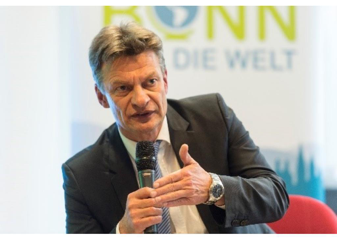The Network for Inclusive Economic Development (NIED), under GIZ and the International Organisation for Migration (IOM), has reiterated that for the economy to bounce back from the negative impact of the COVID-19 pandemic and restore livelihoods, the need to leverage remittances for financial access is paramount.
According to IOM, while emigration from Ghana has slowed over the last five years, there has been consistent growth in the total value of inbound remittances to the country – making the nation the second-largest receiver in sub-Saharan Africa after Nigeria; hence the urgent need to monitor these inflows and channel them into productive economic means.
Chief of Mission-IOM, Abibatou Wane, stated that migrant remittances play an important role in reducing poverty and also constitute an important source of foreign exchange, enabling countries to acquire vital imports or pay off external debts; and Ghana has been a key beneficiary of remittances, hence this call cannot be overemphasised.
“In Ghana remittances are a growing source of foreign funds, raising the standard of living for vulnerable and low-income households across the country. For the next step, it is key to organise, brainstorm, build synergies, form partnerships and work together to ensure that the findings from this discussion which ensue from this seminar inform policymaking,” she said.
She added that remittances through official channels have increased significantly and can be equated to 7.4 percent of Gross Domestic Product (GDP); therefore if properly monitored and means of transfer are well developed, remittances sent through informal channels could increase total flows by as much as 50 percent.
NIED Cluster Coordinator-GIZ Ghana, Gerald Guskowski, emphasised that inflows of money from migrants anywhere – whether be it from the country of destination or country of origin – helps everyone involved in that cycle. Therefore, a conversation around how to harness the benefits which remittances present to individuals and the destination country is very crucial.
“Remittances have become a major contributing factor to increasing household income as well as the country’s GDP. In this sense, they are also a potentially stabilising factor for national currencies and can provide developing countries with lower borrowing costs by presenting them with a stable flow of foreign exchange ‘collateral’. Remittances support economic growth,” he reiterated.
These remarks were made at the multi-stakeholder dialogue on remittances, organised by the Deutsche Gesellschaft für Internationale Zusammenarbeit (GIZ) Ghana, to mark the International Family Day of Remittances (IFDR) under the theme ‘Recovery and resilience through digital and financial inclusion’.
NIED stressed that when migrants send money back home, they contribute to several of the goals set in the 2030 Sustainable Development Goals (SDG) agenda. In particular: SDG 1, No Poverty; SDG 2, Zero Hunger; SDG 3, Good Health and Well-Being; SDG 4, Quality Education; SDG 6, Clean Water and Sanitation; SDG 8, Decent Work and Economic Growth; and SDG 10, Reduced Inequality.
A major concern raised at the dialogue is the cost and convenience associated with sending and receiving remittances. The Bank of Ghana and Ministry of Finance were urged to develop innovative measures to reduce the cost of sending money to the sub-Saharan region – which is cited to be around 8.2 percent of the send amount, the highest in the world.
Remittances and COVID-19 in Ghana
COVID-19’s impact is harshest for those groups which were already in vulnerable situations before the crisis. This is particularly true for many people on the move, such as migrants in irregular situations.
The World Bank projected that remittance flows to low and middle-income countries (LMICs) were expected to fall by seven percent, to US$508 billion in 2020, followed by a further decline of 7.5 percent to US$470billion in 2021 due to the lockdown and expected economic effects of COVID-19 in the remittance-sending countries.
Contrary to expectations, remittances to Ghana rather increased. The World Bank Migration and Development Report for 2021 reported an increase by five percent to US$3.6billion in remittances flow to Ghana despite the lockdown in many of the remittance-sending countries – which also happen to be host countries for Ghanaian migrants such as Nigeria, the USA, UK, Côte d’Ivoire, Italy, Germany and Canada.
The resilience of Ghanaian migrants has been commended in the face of the harsh economic impact suffered in the top-ten remittance-sending countries because of COVID-19, and have been identified as a critical group in supporting the national recovery effort as contained in the GH¢100billion Ghana CARES programme of the Ministry of Finance.










